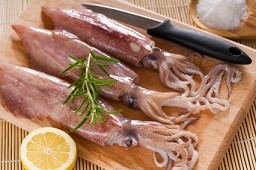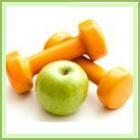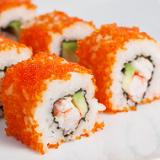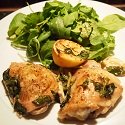Lose Weight
![]() Calories in Food
Calories in Food
![]() Calories in Seafood
Calories in Seafood
![]() Calories in Squid
Calories in Squid
Calories in Squid,
Squid Nutrition Facts
How many calories in Squid? We provide you with the Squid calories for the different serving sizes, Squid nutrition facts and the health benefits of Squid to help you lose weight and eat a healthy diet.
Squid, like Octopus, have four pairs of arms. They are considered a mollusc, and the majority of the creature is edible. Squid are often sold as calamari, but if you are on a weight loss diet, you should avoid fried calamari.
Squid provides an excellent source of copper. In addition, Squid provides a good source of vitamins B1-B3, B5, B6, B12, phosphorus, potassium, zinc and selenium, as well as other vitamins and minerals. They are very low in fat and contain a good amount of protein. However, they are high in cholesterol, even higher than Shrimp. A 100g serving contains more than three quarters of the daily recommended intake of cholesterol.

Squid contains omega-3 fatty acids. They are thought to help lower our blood pressure and help boost our immune system. Other health benefits of squid are believed to include reducing the pain associated with arthritis.
Compare calories in Squid with the other calories in seafood.
Calories in Squid, Mixed Species, Raw
Refuse: 0%Scientific Name: Loligoidae and Ommastrephidae
| Serving Size | Calories per Serving |
| 100 grams | 92 kcal (385 kJ) |
| 1 oz, boneless, 28.35 grams | 26 kcal (109 kJ) |
| 3 oz, 85 grams | 78 kcal (327 kJ) |
Mollusks, Squid, Mixed Species, Cooked, Fried
Refuse: 0%| Serving Size | Calories per Serving |
| 100 grams | 175 kcal (732 kJ) |
| 3 oz, 85 grams | 149 kcal (622 kJ) |
Squid Nutritional Information
| Nutritional value per 100 g (3.5 oz) | |
|---|---|
| Proximates: | |
| Water | 64.54 g |
| Energy | 732 kJ (175 kcal) |
| Protein | 17.94 g |
| Carbohydrates | 7.79 g |
| Total Fat: | 7.48 g |
| saturated fat | 1.878 g |
| monounsaturated fat | 2.749 g |
| polyunsaturated fat | 2.136 g |
| Cholesterol | 260 mg (86 %) |
| Minerals: | |
| Calcium, Ca | 39 mg (4 %) |
| Iron, Fe | 1.01 mg (6 %) |
| Magnesium, Mg | 38 mg (10 %) |
| Phosphorus, P | 251 mg (25 %) |
| Potassium, K | 279 mg (6 %) |
| Sodium, Na* | 306 mg (13 %) |
| Zinc, Zn | 1.74 mg (12 %) |
| Copper, Cu | 2.114 mg (106 %) |
| Manganese, Mn | 0.070 mg (4 %) |
| Selenium, Se | 51.8 mcg (74 %) |
| Vitamins: | |
| Vitamin C | 4.2 mg (7 %) |
| Thiamine (Vit. B1) | 0.056 mg (4 %) |
| Riboflavin (Vit. B2) | 0.458 mg (27 %) |
| Niacin (Vit. B3) | 2.602 mg (13 %) |
| Pantothenic acid (B5) | 0.510 mg (5 %) |
| Vitamin B6 | 0.058 mg (3 %) |
| Folate (Vit. B9) | 14 mcg (4 %) |
| Vitamin B12 | 1.23 mcg (21 %) |
| Vitamin A | 35 IU (1 %) |
| Percentages are relative to US Recommended Daily Intake (RDI) for adults. | |
Author: Lana Soko
You Might Also Like:
Like This Page?
|
Share This Page:
|
Search Our Site:

Free E-Book:
We Recommend:
Looking to get your body into great shape? Get the very best results for your efforts and money! Save your valuable time from surfing the internet. These are theBestselling Weight Loss Programs

Programs that work and have thousands of satisfied customers worldwide!

 |




